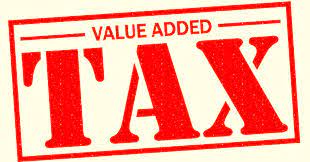The Nigeria Customs Service (NCS) has announced the approval of a Zero Percent Duty Rate (0%) and Value Added Tax (VAT) exemption on selected basic food items, as directed by President Bola Tinubu. The policy, which came into effect on July 15, 2024, will remain in force until December 31, 2024.
Customs spokesman Abdullahi Maiwada stated that this presidential directive was communicated through the Minister of Finance and Coordinating Minister of the Economy, Olawale Edun. The move is intended to alleviate the hardship faced by Nigerians due to the high cost of essential food items.
While the policy provides immediate relief, Maiwada emphasized that it does not detract from the long-term strategies to protect local farmers and manufacturers. The implementation of this policy is aimed at addressing the national supply gap, ensuring that basic food items are more affordable and accessible.
Eligibility Criteria for Companies
To participate in the zero-duty importation of basic food items, companies must meet the following criteria:
1. Incorporation and Operational History: The company must be incorporated in Nigeria and operational for at least five years.
2. Regulatory Compliance: The company must have filed annual returns, financial statements, and paid taxes and statutory payroll obligations for the past five years.
3. Specific Requirements for Importers:
– Companies importing husked brown rice, grain sorghum, or millet must own a milling plant with a capacity of at least 100 tons per day, which has been operational for at least four years, and have adequate farmland for cultivation.
– Companies importing maize, wheat, or beans must be agricultural companies with sufficient farmland or feed mills/agro-processing companies with an out-grower network for cultivation.
Basic Food Items Eligible for Zero Percent Duty Rate:
1. Husked Brown Rice
2. Grain Sorghum
3. Millet
4. Maize
5. Wheat
6. Beans
The Federal Ministry of Finance will provide the NCS with a list of approved importers and their quotas to facilitate the importation process under this policy. Importers are required to sell at least 75% of the imported items through recognized commodities exchanges, with all transactions and storage properly recorded.
Compliance and Penalties
The policy mandates that companies must maintain comprehensive records of all related activities for compliance verification. Failure to meet these obligations will result in the loss of all waivers, with companies required to pay the applicable VAT, levies, and import duties. This penalty also applies if the company exports the imported items in their original or processed form outside Nigeria.
Customs Service Commitment
The Comptroller-General of Customs (CGC), Adewale Adeniyi, reiterated the agency’s commitment to streamlining processes to support President Tinubu’s food security initiative. Speaking at the launch of a book titled Impactful Public Relations in Customs Management at the Nigeria Customs Service Headquarters in Abuja, CGC Adeniyi emphasized the importance of ensuring the swift importation of food items while maintaining standards that reduce costs and lower consumer prices.
This policy initiative is a critical component of the government’s broader efforts to enhance food security and address the challenges of agricultural production in Nigeria.










